|
|
||
|
Pro Tools
FILMFESTIVALS | 24/7 world wide coverageWelcome ! Enjoy the best of both worlds: Film & Festival News, exploring the best of the film festivals community. Launched in 1995, relentlessly connecting films to festivals, documenting and promoting festivals worldwide. Working on an upgrade soon. For collaboration, editorial contributions, or publicity, please send us an email here. User login |
Michael Bay Interview: Transformers (by Robin Rowe)I thought this was a particularly good interview with Michael Bay and since Transformers premiered at the LA Film Festival, I wanted to include this interview in this blog. Robin Rowe, a Los Angeles screenwriter and facilitator of weekly filmmaker events, asks Bay practical questions that I think a lot of filmmakers will appreciate. Enjoy! (Contact information for Robin is at the bottom of this email.)Michael Bay Interview: Transformersby Robin Rowe [More articles]
Three weeks after The Island. Steven Spielberg called. I said, I don’t know…This summer’s next big action movie, Transformers, directed by Michael Bay and produced by Steven Spielberg, hits theaters on July 2nd. Back in 1995, after directing MTV videos and the "Got Milk?" commercials, Michael Bay directed his first feature film, the action comedy hit Bad Boys produced by Jerry Bruckheimer. Bay followed that with other Bruckheimer features including The Rock, Armageddon, Pearl Harbor, Bad Boys II, and The Island. Critics ravaged Pearl Harbor, but the movie grossed $450 million, and it became one of the top-selling DVDs of all time. Bay became one of the youngest directors ever to reach the billion-dollar box office mark. As a producer, Bay founded Platinum Dunes in 2001 to create lower-budgeted films and to help new directors break into movies (The Texas Chainsaw Massacre, The Amityville Horror, The Hitcher). In May, an investment group led by Bay took ownership of post house Digital Domain for a reported $35M. Digital Domain has created big effects movies such as Titanic and sells the Academy Award-winning compositing program NUKE that’s used to add visual effects to motion pictures.
Q: I saw you win at the MTV Awards on June 3rd. Transformers won the MTV movie award for "Best Summer Movie You Haven't Seen Yet." You were at a loss for words. What do you say for winning for best picture that nobody has seen, yet? Q: Why are your movies so successful? My grandfather said the only way to make money is to sell to middle America. He was in the jeans business, a stone washer. Armageddon to me is a comedy, an average Joe saving the world. A lot of my movies deal with heroism or becoming a hero. Q: Steven Spielberg says you’re the perfect director for Transformers. What does he mean by that? I have a visual sensibility. Steven has said I’m one of the better shooters out there, that I’ve got the best eye in Hollywood. It’s amazing to sit in a room with Steven Spielberg and get to say, let’s talk about this scene or that scene. I like bouncing ideas off him. In the edit room, Spielberg is slapping me on the leg. Why is he doing that? Transformers brings out the kid in everyone. Q: Spielberg was working on Transformers before Paramount acquired DreamWorks. When did you come onboard? Three weeks after The Island. Steven Spielberg called. I said, I don’t know… Q: Steven Spielberg calls, and you say, I don’t know? I’ve been offered a lot of action movies. I wasn’t a fan of Transformers, wasn’t the right age to have been caught up in it. Hasbro sent me through Transformers school to learn all the characters and stories. I met with the writers. They didn’t want to show me the first script. We kind of threw that out. It was too kiddie. I said it would have to be cool for teenagers and fun for adults. Spielberg said it the best: "It’s about a boy buying his first car…that turns out to be an alien robot." That’s what sold me. Hasbro sent me through Transformers school...Q: Why do critics give you a hard time? I asked a well-known critic over lunch, why do I get so much shit? He said, "You made too much success too early. We build them up to tear them down. And, we got bored going after Jerry Bruckheimer." Jerry taught me, don’t read the critics. Q: What’s a typical day? What’s it like to be Michael Bay? I have good days and bad days. I hang by the house, the pool. I read. I go to the office in Santa Monica where the edit bays are. Platinum Dunes is there. Q: How do you create your action scenes? The way I do action is the major beats. For a car chase, what are my big beats here? I use pre-viz. It’s put mostly in my head. I don’t storyboard the connecting pieces. I think storyboards are B.S. Crews don’t look at them anyway. I lay out a little road with Matchbox cars. You may think it’s silly. It’s important because you have stunt players, important they not crash into your event. I put the Matchbox cars on paper and say, right here at this cone you turn. For gunfights sometimes you can play act that on the set. You go to point B, C, then here, here. Storyboards take so many frames to show an action scene they don’t make sense. It’s better to walk it, talk it, or pre-viz. Q: Do you like to shoot? I like to camera operate. I won’t operate when the actors are acting. I need to see their eyes and too much is happening with the camera. I’ll put myself in dangerous positions to show my crew what we’re doing is actually safe. I started out wanting to be a DP…have a photo background. I can work with just about any DP. Q: Why did you become a director instead of a DP? I shot some student films. I’d ask, are you sure you want to do that shot? You don’t want that. Really…you don’t. This is a lame shot. Q: How do you decide what's the best lens and framing for a shot? Do you have favorite lenses and shots? Panavision designed some wide anamorphics for me, a 20, a 24. I used the 30 quite a bit, and the 35. They widened them out a bit, made them flatter for me. I was the first to shoot with the 3600 anamorphic, which was used in the desert for the planes flying in and for some of the car chase stuff. I own the Arri 235 that I shot maybe a quarter of the movie with. It’s so small. It's a fun camera to shoot with. It’s been hot-wired for me. We build different rigs to do crazy hand-held stuff with it.
Q: How do you get the best performance from actors? I work with actors quite a bit. I always hire improv actors. One of my strengths is creating funny on the set. I need actors who can roll with it. I create a tension on the set that you can see on the actors' faces. Q: How do you get the most of humor? I don’t know. Either you’ve got it, or you don’t. It’s all about timing. You need good sound to hear the joke. Pause for the laugh. Tom [editor Tom Muldoon] and I did the Got Milk campaign. You can’t rush it. I always like to work with actors who can ad lib. Nicholas Cage in The Rock, Shia LeBouf, Owen Wilson, Will Smith...they all have a great improv sense. Martin Lawrence. Comedy has a cadence. You must not break the cadence of a joke. There’s 1.2 million feet of film.Q: Why so many editors on Transformers? There’s 1.2 million feet of film. Speed-wise, it’s important to have an editing team to bounce ideas. Started with Tom Muldoon, then Paul Rubell became available, then Glen Scantlebury. There’s no one editor who’s good at cutting everything. Paul is the uber story editor. Glen cuts the best action. Tom is the best at getting the humor timing. A lot of times we look at it together. With an effects film you have to do ‘turnovers’ that cost $100k per shot. [That is, turnover scenes to ILM for visual effects.] You have to cull through footage fast. The only way you can do that is with multiple editors. Q: How do you like editors to work? My action takes a lot of cutting. I’ll do 60 to 70 setups in a day. Everything is very much in my head. There’s all this film. What do we do with it? I like to see editors do their own thing first. I have a low budget film company [Platinum Dunes] to help young filmmakers. The editor prepares his own cut. Then we’ll work on it for an hour or two. I don’t like to see the assembly. I just want to see scenes. Q: How hands-on are you as an editor? I don’t know how to push buttons to make my own edit. I will never learn to make my own edits because I don’t want to go there. I make my own selects. Q: What’s your advice for editors starting out who wants to edit for you or someone like you? A good way is to start is as an assistant. Roger Barton was an assistant, became third editor on Bad Boys. Jim May is another, working at Platinum Dunes. Along the way doing sides jobs. If I have a big show I let an assistant try it. Platinum Dunes does movies you’d never show your mother…Texas Chainsaw Massacre, The Amityville Horror, The Hitcher. [And, The Birds for 2009.] Q: What’s next? I want to get into the game business. I bought 500-employee Digital Domain. I’m totally immersed in it. Sometimes I’m a control freak beyond control freaks. I try to keep people in top game, something I learned under Jerry Bruckheimer. It’s who you surround yourself with. I’ve worked with people for years. Once people know your sensibility it’s very easy to work. Q: What’s happening with Nuke and Digital Domain? I bought The Foundry in England, too. We’re taking all our software there. They’ll hot-wire Nuke. It needs add-ons and stuff. I brought some guys over from ILM. Q: You hired away guys from ILM while they were doing the effects for your movie? One of the guys was running ILM and another was their head tech guy. They were still nice about doing my movie. They’ll always get some of my business. I don’t use one sole source. Q: In general, are movies as good as they used to be? Things are more real now, more photo real. Look at the 70s and the 80s. Visual effects opened up a whole new world. Maybe there’s over-saturation. We’ve almost seen everything. In the 70s, Steven Spielberg invented dinosaurs. Now he’s hitting me in the leg. Why? Because he’s never seen robots doing that before. It’s hard to tell a fresh story now. Q: Do you have a special personal project you’d like to do? I have a Pulp Fiction type of story called Pain and Gain, a little 35-day shoot if I could find the time. They keep giving me these big action features. Robin Rowe is a journalist, a screenwriter, and hosts weekly filmmaker events at ScreenplayLab in Hollywood (www.ScreeenplayLab.com). He can be reached at robin.rowe@movieeditor.com. 05.07.2007 | festivalsinla's blog Cat. : 2007 MTV Awards A.I. Artificial Intelligence America American film directors Amityville Business Business DreamWorks Entertainment Entertainment Film Films with live action and animation Glen Scantlebury Got Milk? Hasbro Human Interest Human Interest Jerry Bruckheimer Jim May Labor Labor Law Law Los Angeles los angeles film festival Martin Lawrence michael bay Michael Bay Michael Bay Michael Bay Interview MTV Nicholas Cage Owen Wilson Paramount Pictures Paul Rubell robin rowe Robin Rowe Roger Barton Steven Spielberg Steven Spielberg the Academy Award The Foundry the LA Film festival the MTV Awards the MTV Movie Award Tom Muldoon transformers Transformers United Kingdom Will Smith
|
LinksThe Bulletin Board > The Bulletin Board Blog Following News Interview with EFM (Berlin) Director
Interview with IFTA Chairman (AFM)
Interview with Cannes Marche du Film Director
Filmfestivals.com dailies live coverage from > Live from India
Useful links for the indies: > Big files transfer
+ SUBSCRIBE to the weekly Newsletter Deals+ Special offers and discounts from filmfestivals.com Selected fun offers
> Bonus Casino
User imagesAbout festivalsinla Murray Lisa Murray Lisa (SkyGirl Productions) Blogging from Los Angeles: View my profile Send me a message The EditorUser contributions |




















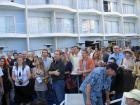
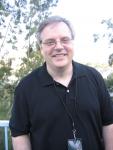
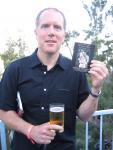
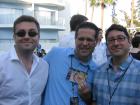
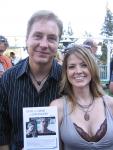




Comments (2)
employee
organized an enormous promotional campaign for the film, making deals with hundreds of companies.
Arizona Employee Handbook
Washer
Development of the film began with a 2003 treatment written by producers Don Murphy and Tom DeSanto. Spielberg acquired the treatment the following year and Orci, Kurtzman and Bay joined the project in 2005. Whirlpool Parts